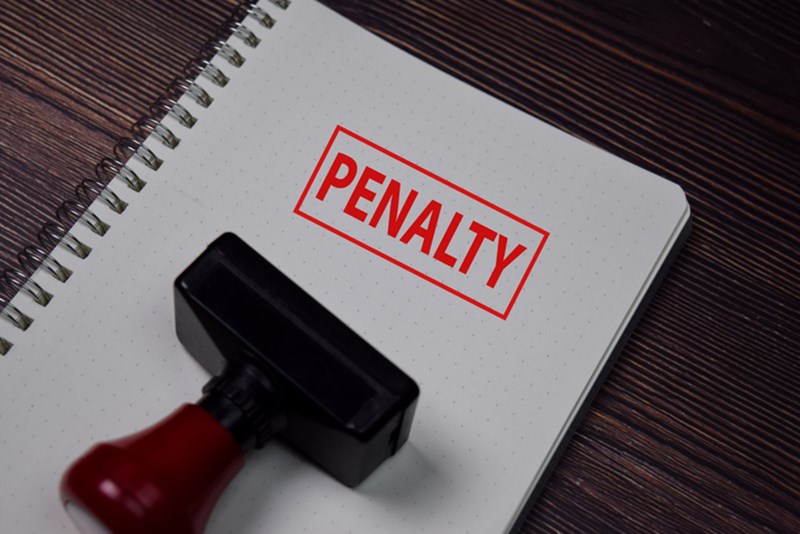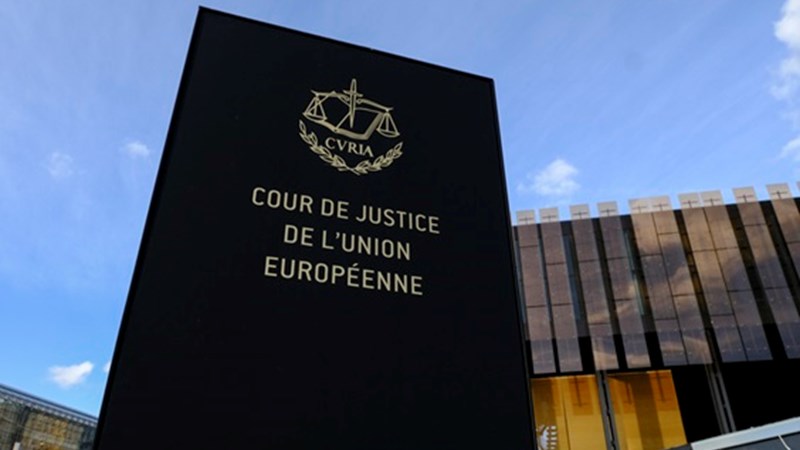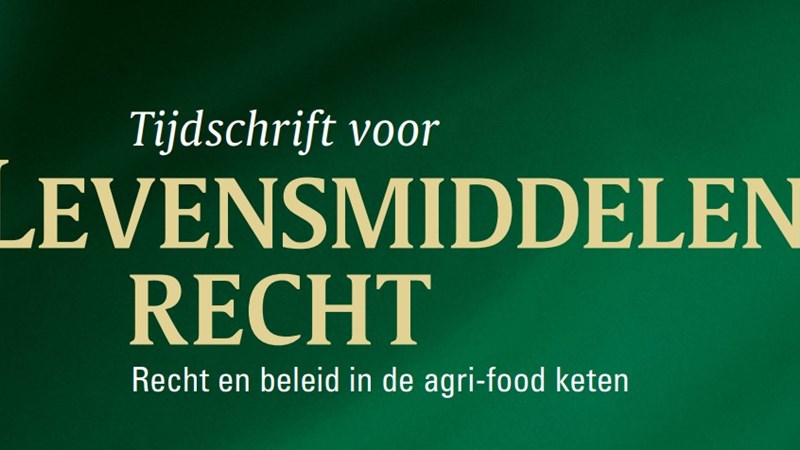The contractual passing on of public fines; a forgotten gem
Maart 2022
In the Netherlands non-compliance with legal provisions can lead to both administrative and criminal measures. Such measures can vary from warnings or administrative enforcement to large fines. It varies between supervisory authorities how these powers are used, but we are seeing a hardening in their approach. Recently we have seen fines imposed of up to 10% of the annual profit of a company.
Not only has the frequency of fines increased over warnings, their level has also been steadily growing.[1] For example: the legal maximum of most administrative fines has increased steadily over the last ten years.[2] As an example of this one may look at the Netherlands Food and Consumer Product Safety Authority (‘NVWA’) and one of the record-breaking fines of EUR 450,000 imposed upon a seller of E-cigarettes.[3] In addition, the NVWA also fined a company regarding the trade of unsafe foodstuffs in the amount of EUR 500,000.[4] Administrative fines within the financial sector or pursuant to the GDPR[5] are even much higher.[6] Consequently, due to current developments chances have increased for companies to find themselves exposed to large public fines.
In the Netherlands it is generally accepted to contractually pass on fines and other financial consequences of non-compliance. We see this ‘contractual gem’ is quite often forgotten. Therefore, in this blog we set out the possibilities and the limits of a contractual ‘passing on’ of fines.
Effecting law-abiding companies
How does one protect its company from public fines which could have a significant impact? A first response might be: our company adheres to all legal requirements and shall therefore not be fined. However the answer might not be this straightforward. What about strict liability? This legal doctrine provides for the possibility to hold a company liable for the actions of third parties. What if a subcontractor in the contractual chain does not adhere to all legal requirements? Under Dutch law, one may be fined for an act or omission of a subcontractor or other actor in the said chain.
Subcontracting agreements are typically exposed to strict liability. As are supply contracts where one can be confronted by a health and safety claim. Our firm often assists clients in cases centred on administrative fines pertaining to food safety regulations. In a number of cases these breaches were caused by defective or faulty supplies from higher up in the contractual chain. In such cases, the fine might be imposed upon a company even though the subject breach occurred elsewhere. The same applies for services that have been subcontracted: in principle the main contractor remains responsible for the execution of the entire service. Something we often come across in the field of transport and logistics. The transport and logistics sector largely operates with significant sub-contractual chains which exposes clients to liability arisen from the acts and omissions of a subcontractor.
Contractual passing on public fines
We now come to the question how to do deal with a situation where authorities impose fines for the actions of others? Of course there is the possibility to claim damages in court. Court proceedings are not always a cost efficient alternative. Court and legal fees may be incurred. Only a fixed part of these costs is awarded by Dutch courts to the winner. We would therefore recommend to contractually pass on such administrative fines.
Dutch law provides for the possibility to pass on public fines to the other contracting party by means of a contractual clause and agreement. The obligation to pay an administrative fine can thus be contractually passed on to the subcontractor.
Wijnen Bouw Horst/Muller
Such a clause was at the heart of the ‘Wijnen Bouw Horst/Muller’- case.[7] In this case the building company Wijnen Bouw Horst subcontracted a specific part of their construction project. Its subcontractor employed several foreign workers who were not in possession of the required permits. Due to this omission Wijnen Bouw Horst was fined in its capacity as the main contractor for the project. The contract between Wijnen Bouw Horst and its subcontractor contained a clause to pass on public fines.[8]
This matter came before the Dutch Supreme Court (Hoge Raad). The Supreme Court ruled that Dutch law does not expressly prevent the use of such clauses. In addition, these clauses are in principle accepted if they do not go against public order or public morals.[9]
Subsequently, the Supreme Court gave a detailed analysis of what going against public order or morals would entail and encompass. The Supreme Court confirmed acceptance of such a clause[10] as long as there was no ’opzet of grove schuld’ which translates to, but is not the exact legal equivalent of ‘intent or gross negligence’. Secondly, according to the Supreme Court the clause could not drafted for the purpose of frustrating the process of fine collecting.[11]
What’s next?
Since the Wijnen Bouw Horst/Muller-case the subject of contractual passing on of public fines has faded into the background of both case law and literature. But the ruling of the Dutch Supreme Court in ‘Wijnen Bouw Horst/Muller’ is still consistent case law. Therefore, the use of clauses passing on public fines is still generally accepted.[12]
We consider this a seldom seen ‘hidden gem’ that could assist to limit one’s exposure against acts and omissions of others. It is thus worth considering to draft and insert in a contract clauses which contractually pass on public fines to the other party.
Our firm is strongly rooted in the field of food safety regulations as well as in transport and logistics where more often than not chains of subcontractors are involved. We appreciate the potential risks involved in these markets and the need to limit exposure. Should you have any queries in this respect, please feel free to contact Marc van Maanen or Silvia Gawronski.
* * *
[1] Advies Raad van State 2017/18, 31.269: Nader Rapport bestuurlijke boetestelsels, p. 13.
[2] Advies Raad van State 2017/18, 31.269: Nader Rapport bestuurlijke boetestelsels, p. 11-12.
[3] “Recordboete voor bedrijf dat e-sigaretten vanuit Heinenoord verkoopt’’, rijnmond.nl, 5 Januari 2021. Which you can find here: https://www.rijnmond.nl/nieuws/202750/recordboete-voor-bedrijf-dat-e-sigaretten-vanuit-heinenoord-verkoopt
[4]“NVWA legt half miljoen euro boete op aan bedrijf voor niet meewerken aan terugroepactie mogelijk besmte varkensveels”, NVWA.nl, 23 Januari 2020. Which you can find here: https://www.nvwa.nl/nieuws-en-media/nieuws/2020/01/23/nvwa-legt-half-miljoen-euro-boete-op-aan-bedrijf-voor-niet-meewerken-aan-terugroepactie-mogelijk-besmet-varkensvlees#:~:text=en%20media%20Nieuws-,NVWA%20legt%20half%20miljoen%20euro%20boete%20op%20aan%20bedrijf%20voor,aan%20terugroepactie%20mogelijk%20besmet%20varkensvlees&text=De%20Nederlandse%20Voedsel%2D%20en%20Warenautoriteit,opgelegd%20van%20ruim%20EUR%20500.000
[5] “Algemene verodening gegevensbescherming”: General Data protection regulation (“GDPR”)
[6] “Bestuurlijke boete op grond van Wft, Pw, Wtt, Wwft en Sw”, DNB.nl, 5 September 2017. Which you can find here: https://www.dnb.nl/voor-de-sector/open-boek-toezicht-wet-regelgeving/toezicht-wet-regelgeving/handhaving/bestuurlijke-boete-op-grond-van-wft-pw-wtt-wwft-en-sw/#:~:text=%5B7%5D%20Voor%20Pw%2C%20Wtt,dan%20%E2%82%AC%202%20000%20000
[7] Hoge Raad 11 December 2015, ECLI:NL:HR:2015:3568 (Wijnen Bouw Horst/Muller).
[8] Hoge Raad 11 December 2015, ECLI:NL:HR:2015:3568 , para 3.1.
[9] Hoge Raad 11 December 2015, ECLI:NL:HR:2015:3568 , para 3.4.
[10] Hoge Raad 11 December 2015, ECLI:NL:HR:2015:3568 , par 3.5-3.5.9.
[11] Hoge Raad 11 December 2015, ECLI:NL:HR:2015:3568 , para 3.6.
[12] See for instance: Concl. A-G De Bock, to Hoge Raad 21 January 2021, ECLI:NL:PHR:2020:1176. See also Court Noord-Nederland 28 January 2022, ECLI:NL:RBNNE:2022:181and Court of Appeal Arnhem-Leeuwarden 16 December 2021, ECLI:NL:GHARL:2021:11415.









